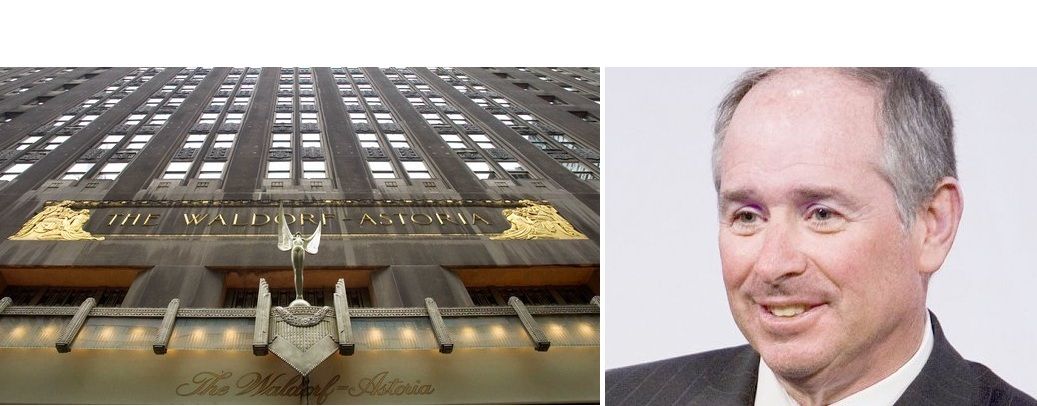–
 Stephen Schwarzman/ Blackstone Group (Getty)
Stephen Schwarzman/ Blackstone Group (Getty)
–
Will you offer us a hand? Every gift, regardless of size, fuels our future.
Your critical contribution enables us to maintain our independence from shareholders or wealthy owners, allowing us to keep up reporting without bias. It means we can continue to make Jewish Business News available to everyone.
You can support us for as little as $1 via PayPal at office@jewishbusinessnews.com.
Thank you.
Nearly three months ago on September 12th, the Hilton hotel chain, or more formally Hilton Worldwide Holdings Inc., filed a preliminary prospectus with the US Securities and Exchange Commission (SEC) for an initial public offering of common shares.
Deutsche Bank, Goldman Sachs, BofA Merrill Lynch and Morgan Stanley were appointed as investment bankers for the deal, which was at the time was expected to be for about US$1.2 billion.
Well, now the paperwork has all passed muster with the SEC and the deal is just about ready to fly, only it looks like the market may be ready to absorb a much larger offering.
Accordingly in its latest SEC filing Hilton state they are now planning to offer 112.8 million common shares to the public at a price in an expected range between US$18 and US$21 per share.
If priced at the top of the indicated price range, i.e. at US$21 per share, such an issue would in total raise about US$2.37 billion gross, before Underwriters’ fees and the costs of the offering.
Of this, about US$1.35 billion would go into the treasury of the company from the sale of new shares, and the remaining US$1.02 billion would go to private equity firm Blackstone Group, which presently owns the company and expects to partially sell down some of its interest through the offering.
To be clear though, even after the deal is concluded Blackstone will still retain overwhelming control of the company.
An Underwriters’ overallotment option is also in place, which could add an additional about US$350 million gross, to the offering. If these options should be exercised it seems as though all of the shares to satisfy them would come from the Blackstone Group itself.
And of course, if the reception for the issue continues to stay strong these terms and conditions might even be further modified upwards.
Hilton Worldwide, had been purchased by the Blackstone Group late in 2007 in a deal with an enterprise value of US$25 billion, including US$7 billion of debt that was assumed at the time.
The deal was struck at the peak of the last LBO buying cycle – something Blackstone probably quickly came to regret for at least a moment or two, as the financial system then had a near-death experience in 2008 and the whole world fell into a prolonged slump in business.
Much to their credit Stephen Schwarzman’s Blackstone Group then hunkered down and managed the worldwide hotel chain out of recession, to the point where the markets are ready to now put some fresh capital into it with this IPO in order to pay down some of its debt.
Crucially to the chain’s success Blackstone installed a strong CEO in Christopher J. Nassetta. They also restructured its debt and then encouraged and funded an expansion of Hilton’s international holdings, essentially to take advantage of the misfortunes of others during the downturn.
As a result Hilton increased its total number of available rooms in the period by one third, with a text-book execution of a competitive advantage obtained through an aggressive counter-cyclical investment policy.
This is something very easy to grasp intellectually, but always seems very hard for Boards of Directors to actually endorse and do, when the world is falling all around them and a company’s balance sheet already has many claims on it.
Today Hilton Worldwide therefore can claim to be one of the largest and fastest growing hospitality companies in the world, and they are making money too.
See more sroties about this topic:
–



